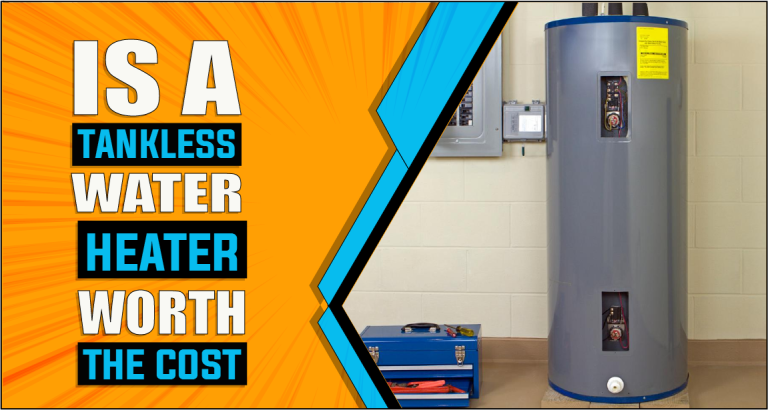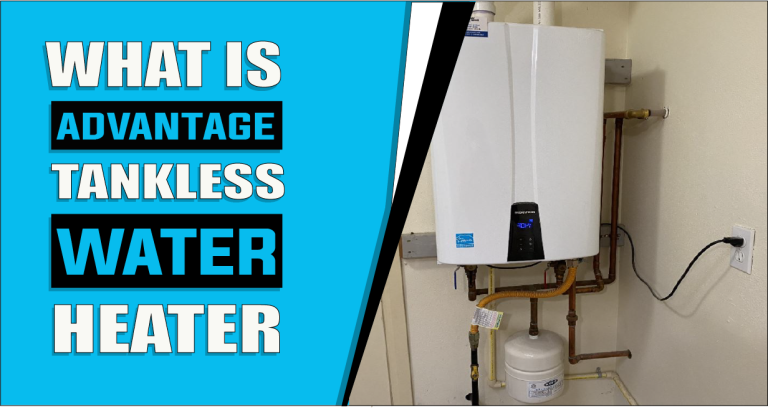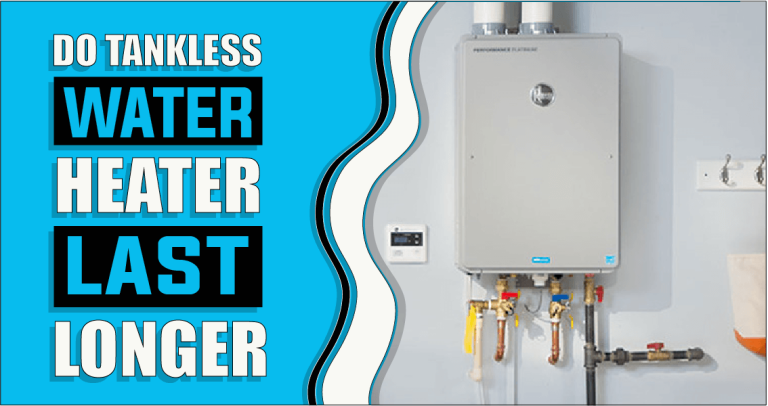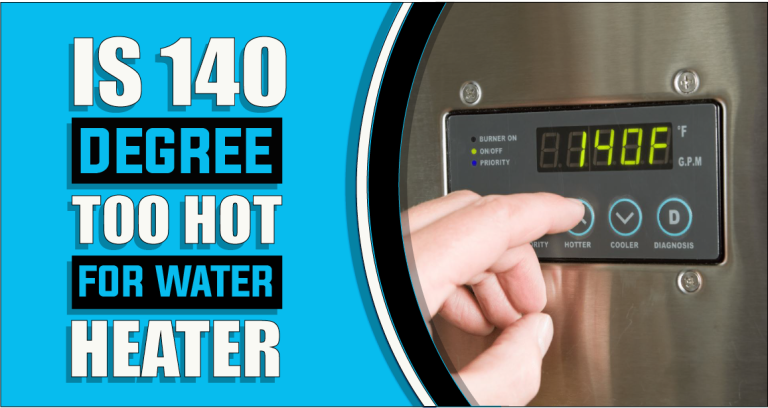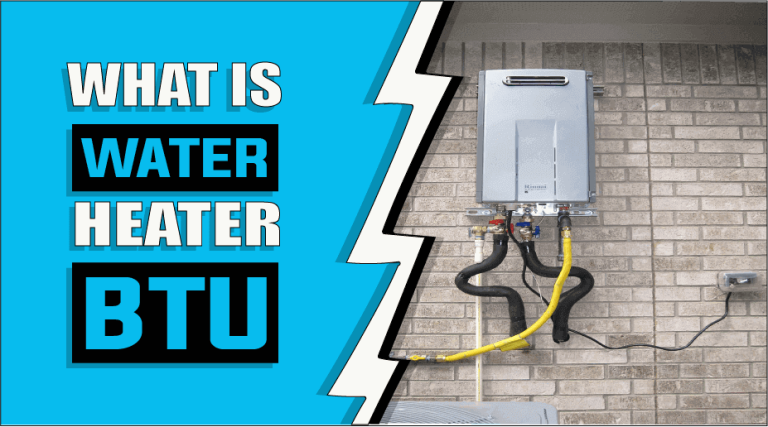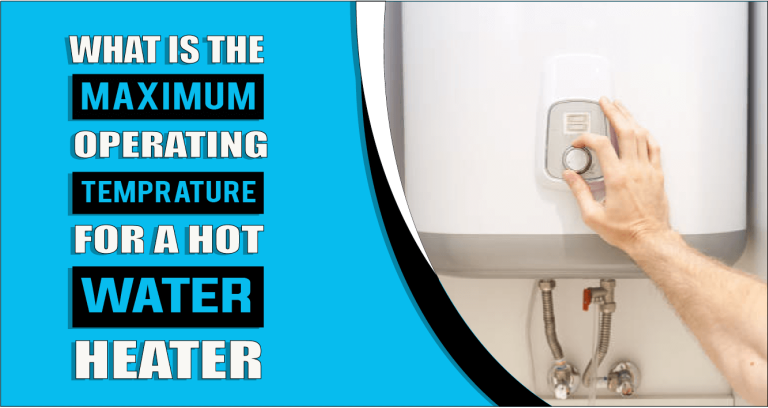What Is A Hot Water Heating System | A Comprehensive Guide
A hot water heating system provides warmth and comfort to homes and buildings using heated water as the medium. This system operates by circulating hot water through pipes to various points within a structure, such as radiators, baseboard heaters, or underfloor heating systems. As the water flows through these devices, it releases heat into the surrounding space, creating a cozy and comfortable environment. This article will explore the components, types, benefits, installation considerations, maintenance, and common issues associated with hot water heating systems. We will also compare them to other heating methods and discuss their environmental impact. By understanding the workings and characteristics of these systems, you can make informed decisions about their suitability for your heating needs. Without any further ado, let’s have a look!
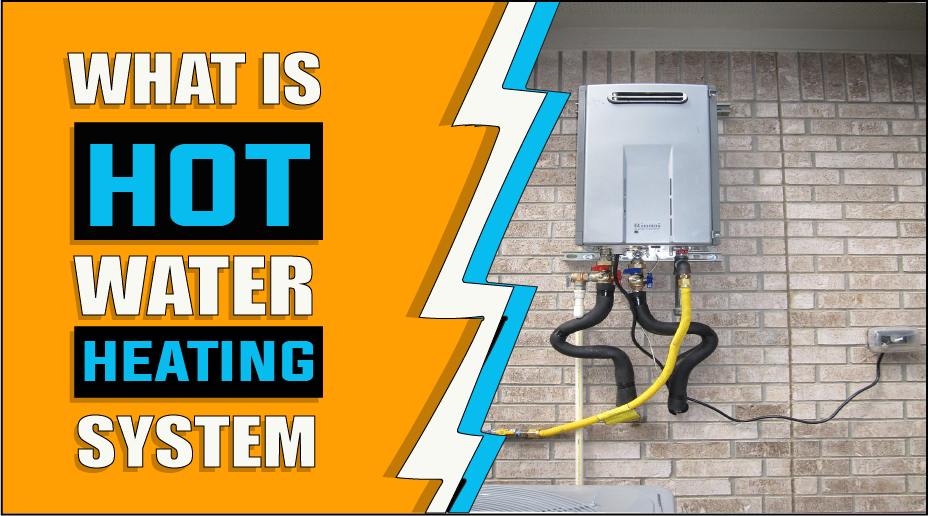
An overview of what is a hot water heating system
A hot water heating system distributes heat throughout a building using hot water as the medium. It involves a central heating source, such as a boiler or water heater, which heats the water and circulates it through pipes to radiators, baseboard heaters, or radiant floor systems. The heated water releases heat into the surrounding space, providing warmth and comfort.
Historical background of hot water heating systems
The historical background of hot water heating systems dates back to centuries ago when people relied on various methods to heat water for domestic use. Before modern technologies, water was often heated in pots over open fires or on stoves. However, dedicated hot water heating systems were developed in the late 1800s and early 1900s.
In 1868, Benjamin Waddy Maughan, a house painter from London, patented the first residential water heater. This innovative device provided a more convenient and efficient way to heat water than traditional methods.
Later, in 1889, Norwegian-American engineer Edwin Ruud invented the first electric water heater. This breakthrough introduced a new era of hot water heating systems, eliminating the need for gas or solid fuel as an energy source.
Over time, hot water heating systems evolved further with the introduction of central heating systems in the early 1900s. These systems allowed for the distribution of heated water throughout buildings and homes, providing warmth and comfort during colder seasons.
Today, hot water heating systems have become an integral part of residential and commercial buildings worldwide. They have undergone advancements in technology, becoming more energy-efficient and environmentally friendly.
From traditional boilers to tankless water heaters, hot water heating systems are crucial in ensuring comfort and convenience in our daily lives.
Types of hot water heating systems
Several hot water heating systems are available, each with unique characteristics and advantages. Here are some common types of heating systems:
- Hydronic Radiators:
This is the most traditional type of hot water heating system, where water is heated in a boiler and circulated through radiators placed throughout the building. These radiators release heat into the surrounding space, providing warmth and comfort.
- Baseboard Heaters:
Similar to hydronic radiators, baseboard heaters use hot water to provide heat. However, instead of radiators, they feature long, narrow units installed along the baseboards of walls. These heaters use natural convection to distribute heat, making them quieter than radiators.
- Underfloor Heating Systems:
Also known as radiant floor heating, this system involves installing pipes or cables beneath the surface. Hot water circulates through these pipes, radiating heat upward, creating a comfortable and even warmth throughout the room.
- Combination Systems:
Some hot water heating systems combine heating and domestic hot water production in a single unit. These systems provide warmth to the building and supply hot water for bathing, washing, and other household needs.
When choosing the right hot water heating system type for your specific needs, it’s essential to consider factors like energy efficiency, installation requirements, and cost. Consulting a professional can help you select the most suitable system for your home or building.
Components of a hot water heating system
A hot water heating system has several key components that provide efficient and reliable heating. Understanding these components is essential for proper installation, maintenance, and troubleshooting. Here are the main components:
- Boiler: The boiler is the heart of the hot water heating system. It heats the water using a fuel source such as gas, oil, or electricity. The heated water is then circulated throughout the system to provide warmth.
- Circulating Pump: This pump is responsible for moving the hot water from the boiler to the distribution points, such as radiators or underfloor pipes. It ensures even heat distribution and maintains a consistent flow of water.
- Expansion Tank: Hot water expands as it heats up, which can cause pressure build-up in the system. An expansion tank accommodates the expansion of water and regulates the pressure within the system, preventing damage to pipes and components.
- Radiators or Underfloor Pipes: These are the points of heat distribution within the building. Radiators release heat into the surrounding space, while underfloor pipes emit warmth upwards. Both options provide comfortable and efficient heating.
- Thermostat: The thermostat controls the temperature of the hot water heating system. It allows users to set desired temperature levels and ensures the system operates accordingly, maintaining a consistent and comfortable indoor climate.
These components work in harmony to provide effective heating throughout the building. Regular maintenance and periodic inspections of these components are crucial to ensure the system’s optimal performance and longevity.
Benefits of hot water heating systems
Hot water heating systems offer several significant benefits, making them popular for residential and commercial heating. Have a look at the key advantages it has to offer:
- Comfortable and Even Heat Distribution:
Hot water heating systems provide a consistent and even heat distribution throughout the building. Radiators or underfloor pipes release warmth into the space, creating a comfortable and cozy environment.
- Energy Efficiency:
Hot water heating systems are known for their energy efficiency. Water has a higher heat capacity than air, allowing it to retain heat for longer. This means less energy is required to maintain a desired temperature, resulting in lower energy bills.
- Zone Control:
Hot water heating systems can be divided into zones, allowing for individual temperature control in different building areas. This feature provides greater flexibility, as occupants can customize heating according to their preferences and usage patterns.
- Durability and Longevity:
Hot water heating systems are built to last. With proper installation and maintenance, these systems can have a long lifespan. The absence of forced air eliminates the risk of ductwork issues commonly associated with other heating systems.
- Improved Indoor Air Quality:
Unlike forced-air systems that can circulate allergens and dust particles, hot water heating systems do not rely on air movement for heat distribution. This can improve indoor air quality, making them a favorable option for individuals with respiratory conditions or allergies.
- Versatility:
Hot water heating systems can be used in various applications, including homes, offices, hospitals, and schools. They can be integrated with other solar thermal or geothermal systems for enhanced efficiency and sustainability.
Considering these benefits, hot water heating systems are reliable and efficient for achieving comfortable and cost-effective heating in residential and commercial settings.
Installation considerations for hot water heating systems
When installing a hot water heating system, there are several key considerations to keep in mind to ensure optimal performance and efficiency. Here are some essential factors to consider:
- Proper Sizing:
It’s crucial to accurately calculate the heating load of the building to determine the appropriate size of the boiler and radiators. Undersized equipment may not provide sufficient heat, while oversized systems can lead to energy wastage and increased operating costs.
- System Design:
The layout and design of the system play a crucial role in its efficiency. Properly designed piping, insulation, and component placement help minimize heat loss and ensure even heat distribution throughout the building.
- Boiler Selection:
Choosing the correct type of boiler for the specific heating needs is vital. Consider factors such as fuel availability, energy efficiency ratings, maintenance requirements, and compatibility with the heating medium.
- Insulation:
Adequate insulation of pipes, ductwork, and other system components helps reduce heat loss during transportation. Proper insulation improves energy efficiency and minimizes the workload on the heating system.
- Ventilation and Combustion Air:
Hot water heating systems require proper ventilation and combustion air supply for the boiler. Ensure adequate air circulation and ventilation to prevent carbon monoxide build-up and inefficient combustion.
- Safety Measures:
Install safety devices such as pressure relief valves, temperature controls, and backflow preventers to protect the system and ensure safe operation.
- Professional Installation:
Hiring a licensed and experienced HVAC professional is highly recommended to ensure a successful installation. They have the expertise and knowledge to correctly design, install, and commission the system while adhering to local codes and regulations.
Considering these installation considerations, you can maximize your hot water heating system’s performance, efficiency, and longevity. Professional guidance and attention to detail during installation are essential for achieving optimal results.
Tips For Proper Hot Water Heater Maintenance
Proper maintenance is essential for the longevity and efficiency of hot water heating systems. Regular upkeep helps prevent potential issues, ensures optimal performance, and extends the system’s lifespan. Below are some essential maintenance tips for hot water heating systems:
- Test the TPR Valve: The temperature-pressure relief (TPR) valve is a safety feature that releases excess pressure and temperature. Periodically test the valve to ensure it is functioning correctly.
- Check the Anode Rod: Inspect the anode rod, which helps prevent corrosion inside the tank. If it appears worn or corroded, consider replacing it to protect the tank from damage.
- Drain and Flush Sediment: Over time, sediment can accumulate at the bottom of the tank, reducing efficiency and affecting performance. Regularly drain and flush the tank to remove sediment build-up.
- Lubricate Circulating Pump: Lubricating the circulating pump motor with a lightweight oil, such as 3-in-1 oil, helps maintain smooth operation. Refer to the manufacturer’s instructions for specific guidelines.
- Inspect Vents and Chimney: Ensure that vents and the chimney are clear of obstructions, allowing proper airflow and preventing the risk of carbon monoxide build-up.
- Check for Leaks: Regularly inspect pipes, valves, and fittings for any signs of leaks. Addressing leaks promptly can prevent water damage and maintain system efficiency.
- Schedule Professional Tune-Ups: It’s advisable to have a professional technician perform an annual tune-up to ensure all components are functioning correctly and address any potential issues.
Following these maintenance tips, homeowners can keep their hot water heating systems in optimal condition, ensuring reliable performance and energy efficiency.
Initial installation costs
Initial installation costs play a crucial role in any installation, whether for infrastructure, equipment, or systems. Initial installation costs refer to the expenses incurred during the setup and implementation of a project or system. Here are some key points to consider:
Initial installation costs encompass various expenditures to establish the desired infrastructure or system. These costs include materials, labor, equipment, permits, and any necessary modifications or renovations.
Factors Affecting Costs:
Several factors influence the initial installation costs. These may include the size and complexity of the project, location, availability of resources, market conditions, and any specialized requirements.
- Importance of Planning: Accurate planning is essential to estimate and manage initial installation costs effectively. Conducting thorough research, obtaining multiple quotes, and seeking professional guidance can help ensure a realistic budget and avoid unexpected expenses.
- Long-Term Considerations: While the initial installation costs may seem significant, it’s essential to consider the long-term benefits and potential cost savings. Investing in high-quality materials, efficient systems, or sustainable technologies can reduce maintenance and operating expenses over time.
- Cost Estimation Tools: Various tools and calculators are available to estimate initial installation costs for specific projects, such as solar panel installations, home renovations, or infrastructure development. These tools can provide valuable insights and help individuals make informed decisions.
Understanding and carefully considering the initial installation costs associated with a project or system is crucial for effective financial planning and successful implementation. Seeking expert advice and utilizing available resources can contribute to accurate cost estimations and improve project outcomes.
FAQS
Hot water heating systems operate on the principle of convection and radiant heat transfer. The boiler or water heater heats the water pumped through a closed-loop system of pipes. The hot water flows to the radiators or other heat emitters, releasing heat into the room. As the water cools down, it returns to the boiler for reheating, completing the cycle.
Yes, hot water heating systems can be highly energy-efficient. Modern systems have improved insulation and control mechanisms that minimize heat loss and optimize energy consumption. These systems can be tailored to specific comfort levels and reduce energy waste using thermostatic controls, programmable timers, and variable-speed pumps. Additionally, advancements in boiler technology, such as condensing boilers, further enhance efficiency by recovering heat from combustion gases.
Regular maintenance is essential for properly functioning hot water heating systems. Routine tasks include cleaning or replacing air filters, inspecting and flushing the boiler, checking for leaks or corrosion, and ensuring proper water pressure. It is recommended that a qualified technician schedule annual maintenance to address any issues, optimize system performance, and extend its lifespan.
Absolutely! Hot water heating systems suit many applications, from tiny residential houses to large commercial buildings. They can provide reliable and efficient heat distribution for homes, apartment complexes, offices, schools, hospitals, hotels, and more. The scalability and flexibility of these systems make them a popular choice in various settings.
Conclusion:
In conclusion, a hot water heating system is a vital component of residential and commercial buildings, providing a reliable and efficient means to heat water for various purposes. It has evolved significantly, from simple methods of heating water over fires to inventing dedicated water heaters and developing central heating systems. Overall, hot water heating systems provide us with the essential comfort and convenience of heated water, improving our overall quality of life while contributing to a more sustainable and environmentally conscious society.
Ella John is passionate about helping her readers make the best choice when purchasing a heater. She understands that selecting a heater can be difficult and strives to provide information to help make the decision easier. Ella’s website, Heatersinfo.com, provides valuable insight into heating trends and types of heaters and tips on how to care for them. She also advises selecting the right heater based on individual needs and preferences. Her expertise in electronics makes her an excellent source of knowledge, and she is confident that anyone who visits her website will find the perfect heater information for their needs. Ella’s dedication to helping others make educated decisions about buying the right heater is unparalleled, and she hopes to continue offering her expertise for many years. With Ella’s help, finding the perfect heater can be a breeze!

